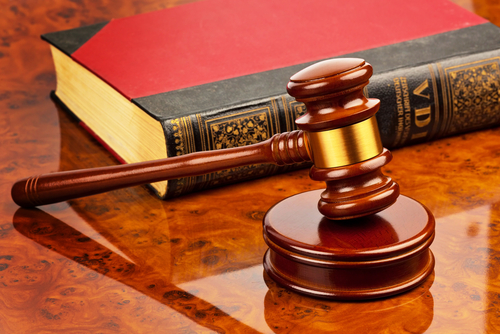
I’ve Been Charged With a Criminal Offense. Now What?
The process that takes place once you have been charged with a criminal offense can vary depending on the severity and nature of the crime.
If there is probable cause to believe that a crime has been committed, you will either be released with a citation or arrested. Instead of either of these, you may receive a complaint or summons that will explain your charges and provide a court date. If you fail to appear in court, a warrant of arrest will be issued.
The Hearings
If you are taken into custody for your criminal offense, the next step is the bail hearing. It is here that the court will decide what conditions need to be met before you can be released. Sometimes you’ll be released on your promise to return to court and other times a bail amount along with other conditions will be set prior to your release.
The next hearing you will have is called a First Appearance or Arraignment. Here you will be informed of the charges and constitutional rights. You can enter a plea at this hearing if you have committed a misdemeanor offense. If you’ve been charged with a felony, you’ll have to wait until the next hearing to enter the plea.
The third hearing in the process is a pre-trial conference. All the evidence that can be used against you will have been produced by the state and a skilled attorney from Dement Askew will review to determine any probable causes, constitutional issues or evidentiary. This is also the time discuss possible settlements. If none are reached, a trial date is set.
Trial and Sentencing for a Criminal Offense
At the trial you will have the chance to challenge the state to prove your guilt beyond a reasonable doubt. A judge or jury will determine whether or not you’re guilty of a criminal offense based on evidence, testimony and closing statements.
If you’re found guilty, sentencing will take place. Depending on the crime, this can happen straight away or at a later date. Sentencing could include fines, jail time or probation.
There are come crimes that comprise a civil component as well as a criminal offense. For example, you have also been charged with a DWI. In terms of the DWI you may have to have a separate civil hearing relating to your vehicle forfeiture and license revocation.
Why You Should Hire an Attorney For Your Criminal Offense
With any case, important constitutional rights are at stake. One of our experienced attorneys can advise you of all your rights and make sure we proceed with your case in a strategic manner. We will review the evidence that may be used against you and hold the state to its burden of proving guilt beyond a reasonable doubt. Having a criminal defense attorney on your side through this complex process is key to reaching a favorable resolution.
Call (919) 833-5555 today for your consultation.